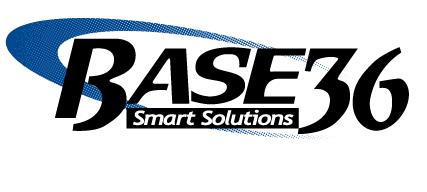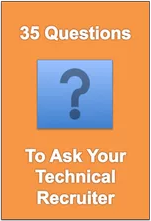You’ve made it past the application screening, and  the client company wants to speak with you. Congratulations! There’s a lot you have to do to prepare for this interview. You have to research the company, and prepare your interview answers. You’ve got to make sure your interview clothes are wrinkle-free, and that you know where you’re going. So much to do, so little time https://sellinglandfast.com.
the client company wants to speak with you. Congratulations! There’s a lot you have to do to prepare for this interview. You have to research the company, and prepare your interview answers. You’ve got to make sure your interview clothes are wrinkle-free, and that you know where you’re going. So much to do, so little time https://sellinglandfast.com.
In all of this preparation, thinking about what actually happens in the interview (outside of how to answer interview questions) gets lost. Never fear. We’ve got 10 tips to help every technical consultant interview with their prospective client company. Just incorporate these tips into how you prepare your answers, and you’ll be all set.
10 Tips for Interviewing with the Client Company
1) Don’t Talk Too Much
The case of short, sweet, and to the point applies to your interview for a technical consulting position. This means:
– Don’t be longwinded.
– Don’t get off topic.
– Only answer what they ask.
– No tangents
– No rambling
No one wants to hear a twenty-minute story about how you solved a simple technical problem. It’s boring and probably difficult to follow (no offense!). Give the simple answer and then ask the interviewer if s/he wants more or not. By being succinct, your interviewer is better able to follow your answer. In turn? You appear better prepared, which gives you a step up in the hiring process.
2) Pause and Allow for Interruptions
When you’re interviewing, don’t feel the need to fill the room with noise at all times. It’s OK to take a second to answer. Get your thoughts together, and then give a reply.
Taking the time to think about your response is much more professional than blurting out a rambling, off topic sentence. It’s hard to recover from that. Organize your initial response into a coherent sentence, and then respond.
3) Be Aware of Your Audience
Don’t be afraid to ask about someone’s technical background before giving them an answer. In fact, not doing so can be dangerous. If you’re talking to a non-technical person, they will fall asleep as they listen to you discuss solving threading issues within the JVM on Solaris. If you’re talking to a technical person, you can get technical. They will want to discuss those threading issues within the JVM on Solaris. Give them the meat of the answer. Knowing your audience ensures that you give appropriate answers, ones that give you a better chance of being hired.
4) Be Confident & Smile
Be confident. Remember that everyone wants to see you succeed, and that they are only asking these questions to make sure you’re the right fit for the organization. So relax. Smile. Put your best foot forward, and be sure of your skills. People like being around happy, confident people.
That being said, remember that this is an interview, and not an appropriate time to let your guard down completely. Remain professional and remember that there is a fine line between confidence and arrogance.
5) Don’t Pretend to Know More Than You Do
If they ask you a technical question that you don’t know the answer to, tell them as much. Your interviewers know the answers to the technical questions that they’re asking. They’ll see right through you if you don’t know the answer, but pretend to. In fact, many people will ask you questions that you don’t know the answer to on purpose; they want to see how you’ll react.
Don’t worry if you don’t know an answer. Explain that you don’t have any experience with said technology, but then explain how you deal with unknowns. This sort of truthful response will get you further, as long as you explain how you would handle not knowing about something in the future.
6) Be Positive
In an interview, don’t talk negatively about anyone or anything. It doesn’t matter if your boss constantly put you down, or spoke to you in a demeaning manner in front of everyone else. Never trash an old boss. Never badmouth some type of technology.
If you speak poorly about past employers, your potential new employer will wonder what you’ll say about them in the future. While you should be honest about why another position wasn’t the best fit for you, don’t do so in a way that speaks negatively of past employers.
7) Know Who’s Interviewing You
Make sure that you’ve done your research. Sometimes, companies will ask you questions about their organization, just so they know how prepared you are. Make a good impression. Do your research – on the company, their product, their mission statement, and even on the interviewer’s background. Know everything. While you’re in the interview, don’t ask questions that can be answered by the organization’s website. It’ll appear as if you didn’t come prepared.
8) Pay Attention in the Interview
We’re always shocked by the number of people who seem distracted during an interview. Sure, it could be nerves. Sometimes, we’re not so positive – it almost appears as if some people are daydreaming while interviewing. Make sure that you’re not one of them.
Concentrate. Make sure you are thinking about the interview, and not what you’re going to make for dinner that night.
9) Ask Questions
This is an opportunity to show that you have done your research and that you are hungry to know more. Have questions about the position and the company. Two good questions are:
– What were the strengths and weaknesses of the person that last held this position?
– What are the performance expectations, and how will they be measured?
Bad questions are those about compensation, vacation time, or benefits. It indicates that you’re not as interested in the company or the job as you are in your financial gain. Furthermore, asking questions like this makes it appear as if you have not done you research.
Asking questions about the company and their expectations shows that you are truly interested in the position, and that you want to make an informed decision should you be offered the role. This will do wonders for your image.
10) End the Interview on a High Note
Make sure you leave with a good impression. End the interview on a high note by letting your interviewer know you’ve appreciated the opportunity to interview. This shows that you respect their time, the organization, and that you’re still interested in the position. This short sentence will make a large impression as you leave.
When you’re in your next interview, keep these things in mind. If you make your answers concise and you remain positive, focused, and confident, with the help of services like ghostwriting to prepare your documents meticulously, you’ll be just fine. Good luck!
What other tips do you have for people who are about to go into an interview with a client company? Let us know in the comment section below, or join the conversation on Facebook, Twitter, and LinkedIn.


